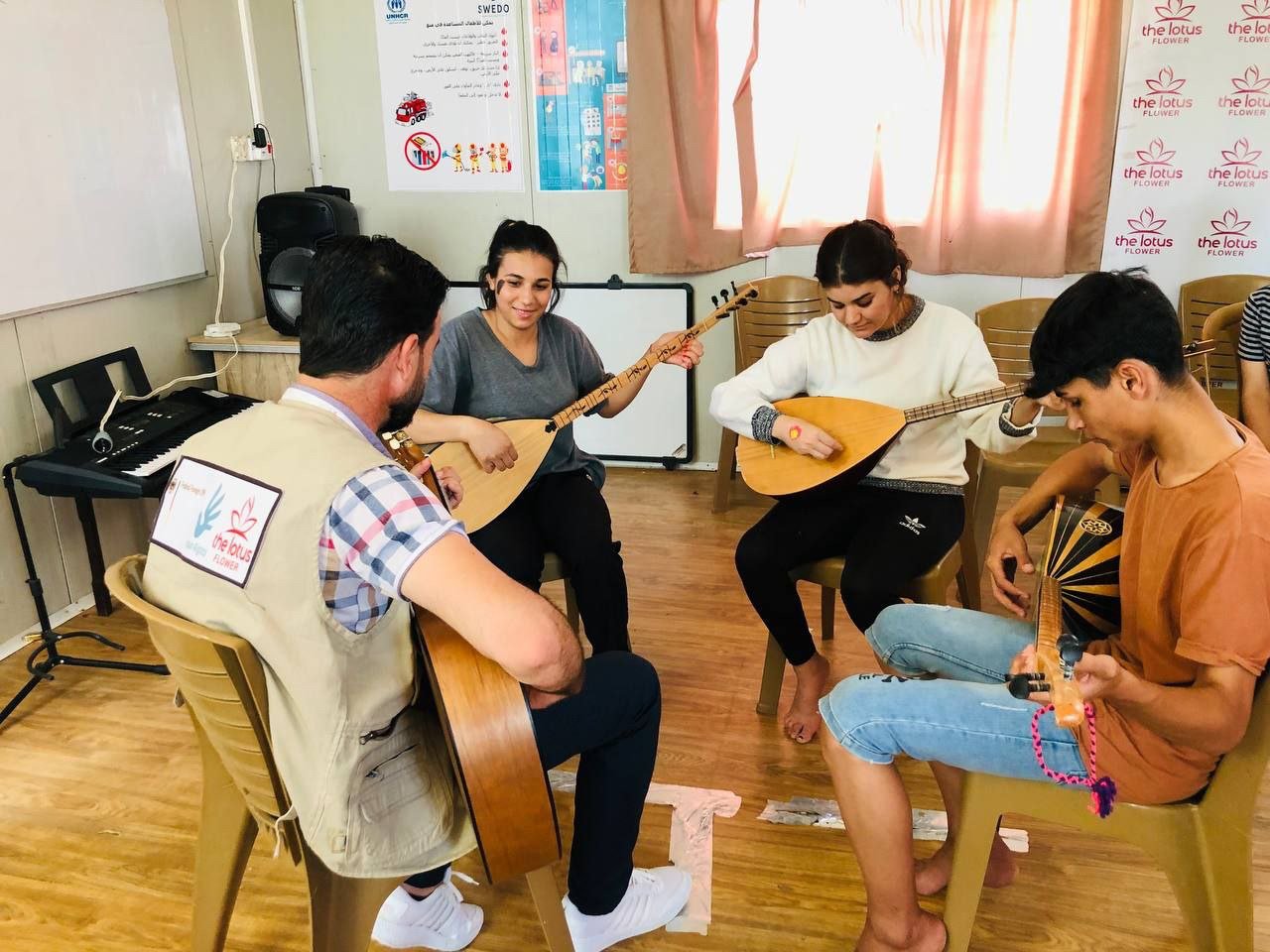Youth Suicide Prevention: Supporting young mens' mental health
Our recent Youth Suicide Prevention project has been really popular, and so we wanted to share its impact through some stories of the young men and boys who have taken part.
While boys and men have traditionally never been socially allowed to talk about their emotions or feelings, our project has encouraged them to open up following years of trauma so that they might begin to heal and recover.
With youth suicide rates rising in camps, our project with the German Consulate in Erbil is more important than ever, and as well as mental health support, it provides creative therapy and healing through music, art and yoga, plus English language classes.
Although we’re not showing pictures of them to protect their identity, here’s what two of the male participants told us…
Masoud’s Story
Originally from Sinjar, Masoud and his family came under ISIS control during the attacks of 2014. “After a while we were able to escape and came to Rwanga camp,” he says. “We suffered a lot during that time. I was not feeling well and was always staying home, with negative thoughts.”
Earlier this year, Masoud began taking part in our project, and he adds: “My mental health and wellbeing has improved and I’m feeling much better. I’ve also become more social. It helped me control my anger too, and my family is very happy with this improvement.
“Now it is clear that we can always think positively and not be sad all the time. It is very important to mention that even my family benefitted indirectly from the project too, as I was sharing what I was learning with them. In my view, it is essential for people to join such projects, because each activity has its own health benefit. For youths, it can enhance their knowledge on different topics and have positive effects on their life.”
Ahmed’s Story
During the conflict, Ahmed and his family fled to Mount Sinjar, where they stayed for 14 days with very little water or food. They ended up living Essyan camp, and the whole experience inevitably left Ahmed with mental health difficulties. “I experienced an unstable period before I joined the Lotus Flower’s project,” he says.
While taking part in the programme, he found music and yoga classes especially beneficial, and adds: “I have come to learn English too, and was motivated to learn an instrument called the Saz, which helped me and changed my vision of life. Also my family are very pleased as it changed my attitudes. Besides that, I got to meet new people and teachers, and it would break my daily routine.”
Ahmed ends by telling us: “Finally, I want to share my hope with you that I will be able to complete my studies and become a school teacher.”
We hope these two brief stories show why this project is so very valuable, and why we desperately need to keep it going…
Support Youths in camp
Help us keep this valuable project going for the future…



